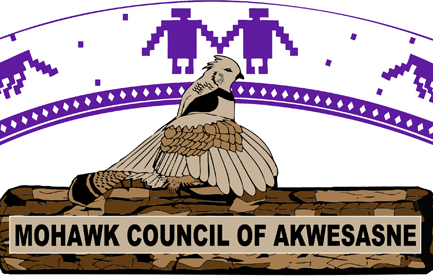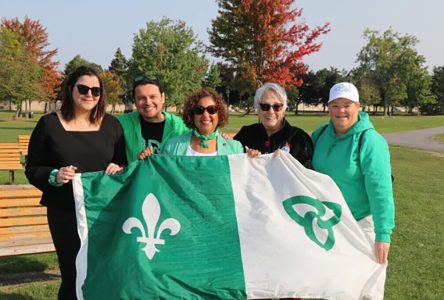AKWESASNE – The Mohawk Council of Akwesasne (MCA) has praised a favourable decision from United States District Court Northern District of New York Judge Lawrence E. Kahn over a centuries old land dispute between the Saint Regis Mohawk Tribe, the MCA, and others against the State of New York.
The decision, which was handed down on Monday, March 14, affirms the boundary of Akwesasne as set out in an agreement between the tribes and the United States government in 1796.
That boundary was whittled away by the State of New York during the 19th century until 2,000 acres of land known as the Hogansburg Triangle was deprived from the Mohawks of Akwesasne.
The MCA first filed the case in 1982, when they were then known as the St. Regis Mohawk Band of Indians. Separate claims were filed by the Saint Regis Mohawk Tribe and Mohawk Nation Council of Chiefs in 1989. The three cases were combined in 1992. The United States government intervened in the case on the side of the plaintiffs in 1998 against New York State.
“For decades, leadership and staff have worked together to pursue this land claim and voice our common position that Akwesasne lands were taken illegally,” said MCA Grand Chief Abram Benedict. “This ruling is a very promising step as it sends a message to New York State and county courts that our land claim has validity. We acknowledge that this is the result of years of hard work by our staff including the late Salli Benedict.”
The Saint Regis Mohawk Tribe were equally pleased with this ruling in the long-running case.
“To say that we are pleased is an understatement,” said Tribal Chief Beverly Cook. “We should all be proud of the perseverance that our recent and ancient ancestors displayed, who stood fast in their determination to protect our lands. We stand in the footprints of our parents and grandparents who fought relentlessly to reclaim our land that was illegally taken. The process will continue to require patience and critical thinking, as we seek to unwind the many complexities of a final remedy and settlement of our land claim.”
Not included in Judge Kahn’s ruling were any sort of remedial steps to back-up his decision about the boundary or the land claims.
“For the remaining areas reserved in the 1796 Treaty not currently under tribal title, the Tribe’s lawyers are still assessing the impact of the U.S. District Court’s ruling,” reads a statement from the Saint Regis Mohawk Tribe.





